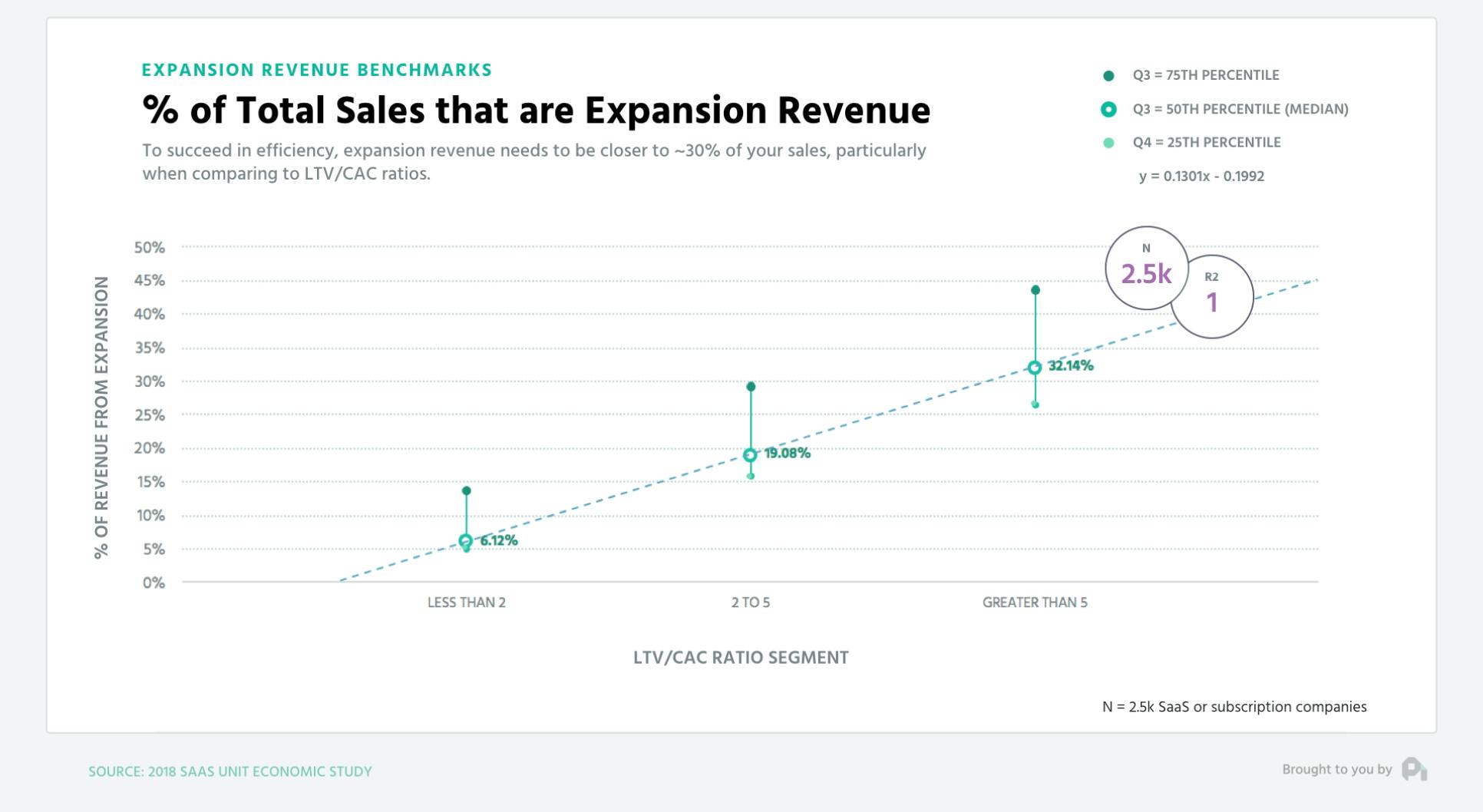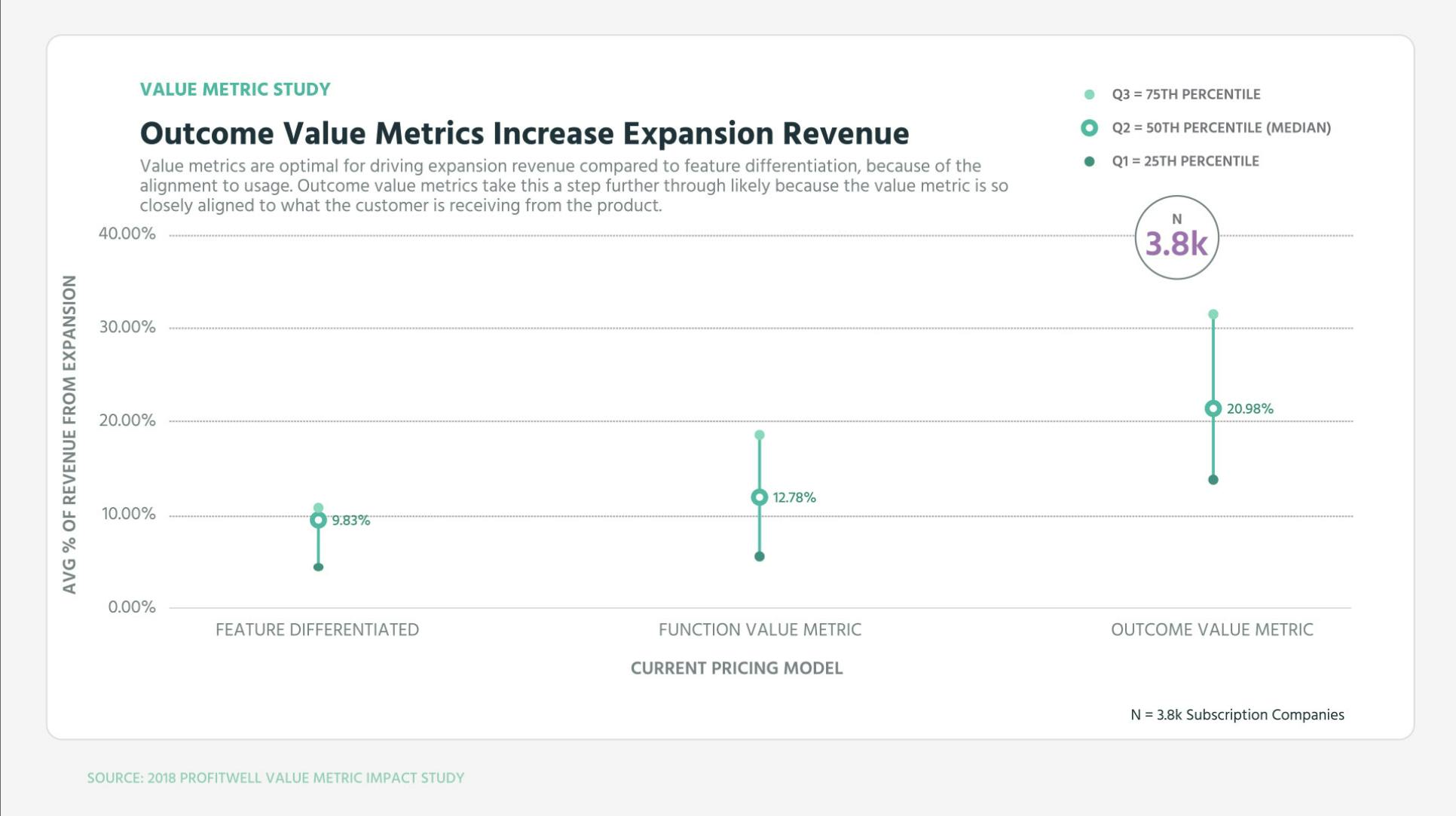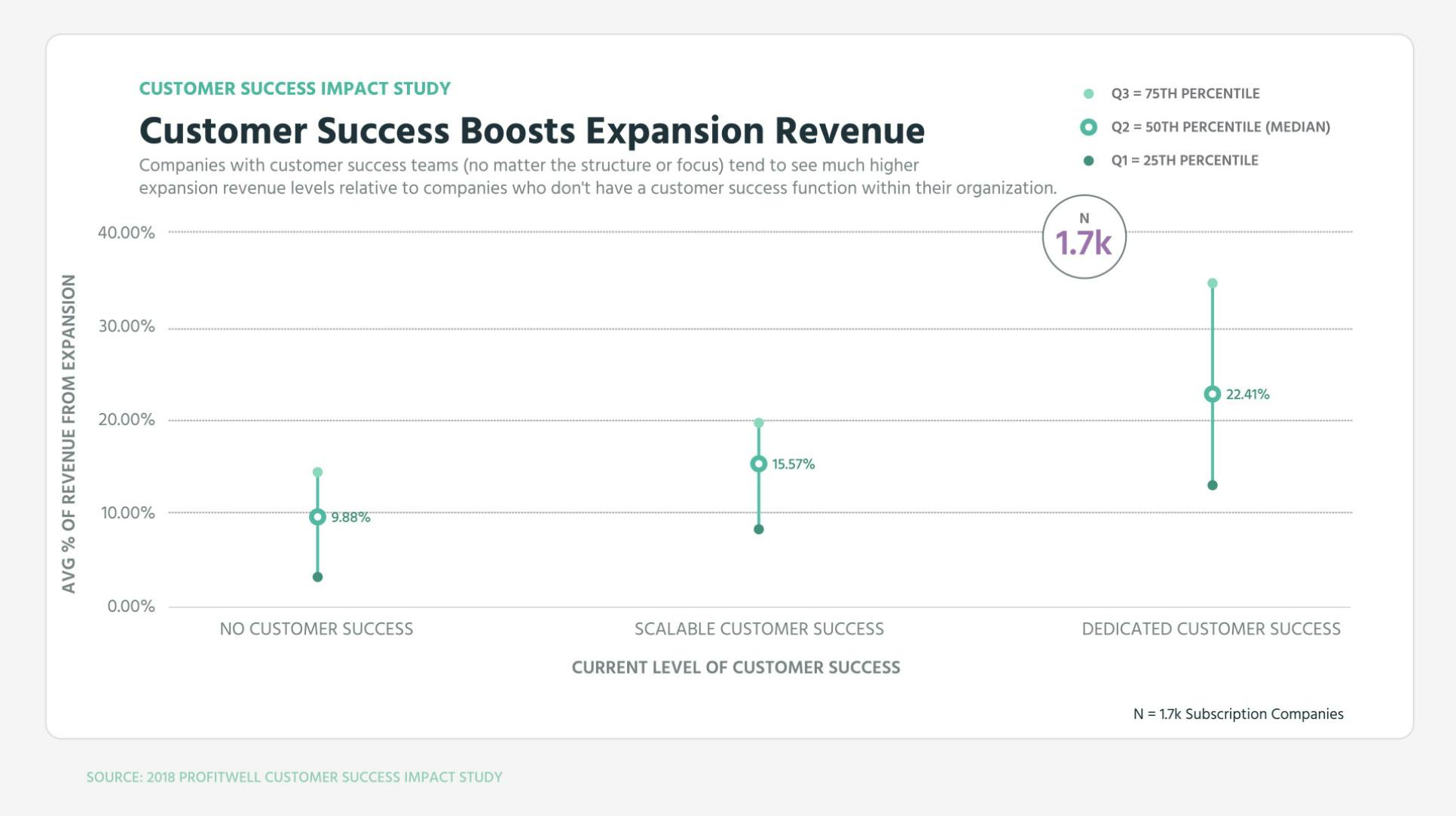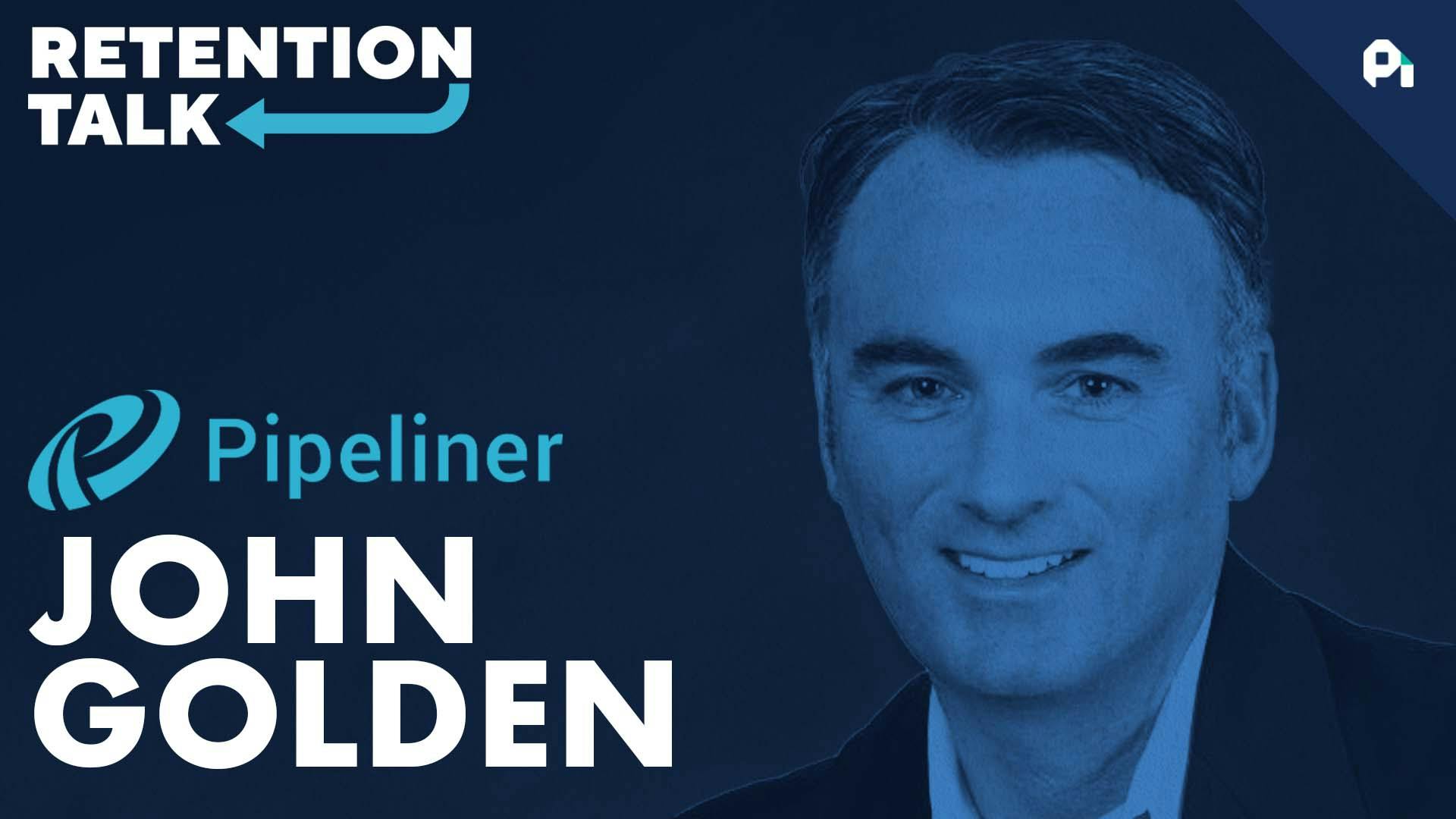
How Do You Increase Expansion Revenue Quickly?
This episode might reference ProfitWell and ProfitWell Recur, which following the acquisition by Paddle is now Paddle Studios. Some information may be out of date.
Originally published: June 26, 2019
Increases in your average revenue per user can stem from many places. You can raise your price, get higher end customers, or coax more upgrades from your current customer base. Regardless of where expansion revenue comes from, it’s absolutely crucial to your success, especially in the world of subscriptions, because you want a healthy amount of expansion revenue to offset any churn that may creep into your business.
But first, if you like this kind of content and want to learn more, subscribe to get in the know when we release new episodes.

First up, we should understand what’s good expansion revenue from a benchmark perspective. The most efficient companies, when looking at lifetime value (LTV) to customer acquisition cost (CAC) ratios, are fueling that efficiency mainly off expansion revenue.

Note that companies who have an LTV to CAC between three and five are seeing a median of just under 20% expansion revenue as a proportion of their total revenue. Those with an LTV to CAC above five are pushing above 30% in terms of expansion revenue.
Essentially, more expansion revenue is definitely better, but we want to get into a world where we’re seeing 20% or more of our revenue coming from expansion. A bedrock way to make this happen is to use what’s known as a value metric as the center of your pricing. A value metric is what you charge for – per user, per 100 visits, per thousand videos – it’s a measure for some proxy of value that you’re providing your customer.
The beauty of a value metric is that customers are only paying for what they’re using, so churn tends to be lower with companies using this type of pricing model. Expansion revenue tends to be much higher, as well.

Those companies using a value metric are seeing 30 to 100% higher levels of expansion revenue than their feature based pricing counterparts. Note that this gain occurs for both functional based value metrics, which would be a pricing model like per user, and for outcome based value metric, which would be like per conversion.
A bit more tactically, customer success also has a pretty significant impact on expansion revenue. Those companies utilizing either scalable or dedicated customer success teams are seeing 60 to 120% higher levels of expansion revenue than those who have no customer success indicating that the use of humans communicating value and spurring upgrades can actually greatly impact your bottom line.

While there are certainly very tactical offers and gimmicks you can use to increase your expansion revenue, the truth is that great expansion revenue requires you to put value at the core of your operations. Using a value metric in your pricing is a very specific decision that requires some careful thought. Making sure customer success exists in your business costs time and money. Yet, if you remember that subscriptions are all about relationships, these decisions become easier, because you’ll want to continue to do things that get as close to customer value as possible.
Want to learn more? Check out our recent episode How does contract length impact ARPU and churn? and subscribe to the show to get new episodes.

1
00:00:00,320 --> 00:00:03,520
You've got the questions,
and we have the data.
2
00:00:03,520 --> 00:00:06,620
This is the ProfitWell Report.
3
00:00:08,545 --> 00:00:11,345
Hey, Neil. This is Ed
Lissinski, CEO of ZYT.
4
00:00:11,345 --> 00:00:11,985
I'd like to know,
5
00:00:11,985 --> 00:00:14,880
how do you increase
expansion revenue quickly?
6
00:00:14,880 --> 00:00:17,580
Welcome back, everyone.
Neil here from ProfitWell.
7
00:00:17,600 --> 00:00:21,520
Increase in your average revenue
per user can stem from many places.
8
00:00:21,520 --> 00:00:24,565
You can raise your price,
get higher end customers,
9
00:00:24,565 --> 00:00:27,285
or coax more upgrades from
your current customer base.
10
00:00:27,285 --> 00:00:29,765
Regardless of where
expansion revenue comes from,
11
00:00:29,765 --> 00:00:33,370
it's absolutely crucial to
your success, especially
12
00:00:39,250 --> 00:00:42,095
Yet expansion revenue isn't
the easiest metric to increase.
13
00:00:42,095 --> 00:00:43,455
So to answer this question,
14
00:00:43,455 --> 00:00:45,695
we looked at just under
four thousand subscription
15
00:00:45,695 --> 00:00:47,855
companies, and
here's what we found.
16
00:00:47,855 --> 00:00:51,190
First up, we should understand
what's good expansion revenue from a
17
00:00:51,190 --> 00:00:52,850
benchmark perspective.
18
00:00:52,870 --> 00:00:54,710
The most efficient companies,
19
00:00:54,710 --> 00:00:57,030
when looking at
ltd to cap ratios,
20
00:00:57,030 --> 00:01:00,675
are are fueling that efficiency
mainly off of expansion revenue.
21
00:01:00,675 --> 00:01:03,715
Note that companies who have
an LTV to CAC between three to
22
00:01:03,715 --> 00:01:06,515
five are seeing a median of
just under twenty percent
23
00:01:06,515 --> 00:01:09,950
expansion revenue as a proportion
of their total revenue.
24
00:01:09,950 --> 00:01:13,710
Those with an LTV to CAC above
five are pushing above thirty
25
00:01:13,710 --> 00:01:15,885
percent in terms of
expansion revenue.
26
00:01:15,885 --> 00:01:18,765
Essentially, more expansion
revenue is definitely better,
27
00:01:18,765 --> 00:01:21,245
but we wanna get into a world
where we're seeing twenty
28
00:01:21,245 --> 00:01:24,420
percent or more of our a
revenue coming from expansion.
29
00:01:24,420 --> 00:01:27,380
A bedrock way to make this
happen is to use what's known
30
00:01:27,380 --> 00:01:30,615
as a value metric as a
center of your pricing.
31
00:01:30,615 --> 00:01:33,335
A value metric is what
you charge for per user,
32
00:01:33,335 --> 00:01:35,575
per hundred visits,
per thousand videos.
33
00:01:35,575 --> 00:01:38,455
It's a measure for some proxy
of value that you're providing
34
00:01:38,455 --> 00:01:40,035
to your customer.
35
00:01:40,160 --> 00:01:43,120
The beauty of a value metric is
that customers are only paying
36
00:01:43,120 --> 00:01:44,160
for what they're using,
37
00:01:44,160 --> 00:01:48,620
so churn tends to be lower with companies
using this type of pricing model.
38
00:01:48,775 --> 00:01:51,655
Expansion revenue tends
to be much higher as well.
39
00:01:51,655 --> 00:01:54,375
Those companies using a value
metric are seeing thirty to one
40
00:01:54,375 --> 00:01:57,370
hundred percent higher levels
of expansion revenue than their
41
00:01:57,370 --> 00:01:59,590
feature based
pricing counterparts.
42
00:01:59,850 --> 00:02:02,650
Note that this gain occurs for
both functional based value
43
00:02:02,650 --> 00:02:06,055
metrics, which would be a
pricing model like per user,
44
00:02:06,055 --> 00:02:07,815
and for outcome
based value metric,
45
00:02:07,815 --> 00:02:09,875
which would be like
per conversion.
46
00:02:09,895 --> 00:02:13,302
A bit more tactically,
hundred and
47
00:02:13,474 --> 00:02:15,846
twenty percent
48
00:02:16,019 --> 00:02:18,391
higher levels
49
00:02:18,563 --> 00:02:21,595
of success teams
are seeing sixty
50
00:02:21,595 --> 00:02:24,235
to a hundred and twenty percent
higher levels of expansion
51
00:02:24,235 --> 00:02:27,355
revenue than those who
have no customer success,
52
00:02:27,355 --> 00:02:30,370
indicating that the use of
humans communicating value and
53
00:02:30,370 --> 00:02:34,290
spurring upgrades can actually
greatly impact your bottom line.
54
00:02:34,290 --> 00:02:36,805
While there are certainly very
tactical offers and gimmicks
55
00:02:36,805 --> 00:02:39,285
you can use to increase
your expansion revenue,
56
00:02:39,285 --> 00:02:42,165
the truth is that great
expansion revenue requires you
57
00:02:42,165 --> 00:02:44,785
to put value at the
core of your operations.
58
00:02:44,920 --> 00:02:47,560
Using a value metric in your
pricing is a very specific
59
00:02:47,560 --> 00:02:50,440
decision that requires
some careful thought.
60
00:02:50,440 --> 00:02:55,005
Making sure customer success exists
in your business costs time and money.
61
00:02:55,005 --> 00:02:58,445
Yet if you remember that subscriptions
are all about relationships,
62
00:02:58,445 --> 00:03:01,565
then these decisions become
easier because you'll want to
63
00:03:01,565 --> 00:03:03,630
continue to do things that get as close
to the customer value as possible.
64
00:03:03,630 --> 00:03:04,697
Well, that's it for now.
65
00:03:04,697 --> 00:03:06,190
If you have any questions,
66
00:03:06,190 --> 00:03:09,450
feel free to send me an
email or a video to neil at
67
00:03:10,845 --> 00:03:11,485
dot com.
68
00:03:11,485 --> 00:03:14,845
And if you got value today
or on any of our other episodes,
69
00:03:14,845 --> 00:03:17,245
we appreciate you sharing
on Twitter and LinkedIn because
70
00:03:17,245 --> 00:03:18,620
that's how we know
to keep going.
71
00:03:18,620 --> 00:03:20,440
I'll see you next week.
72
00:03:22,460 --> 00:03:24,700
This week's episode is
brought to you by Asana.
73
00:03:24,700 --> 00:03:27,805
Asana is the work management
platform teams use to stay
74
00:03:27,805 --> 00:03:29,485
focused on the goals, projects,
75
00:03:29,485 --> 00:03:31,725
and daily tasks
that grow business.
76
00:03:31,725 --> 00:03:33,805
Make more time for the
work that matters most.
77
00:03:33,805 --> 00:03:35,705
Asana dot com.





